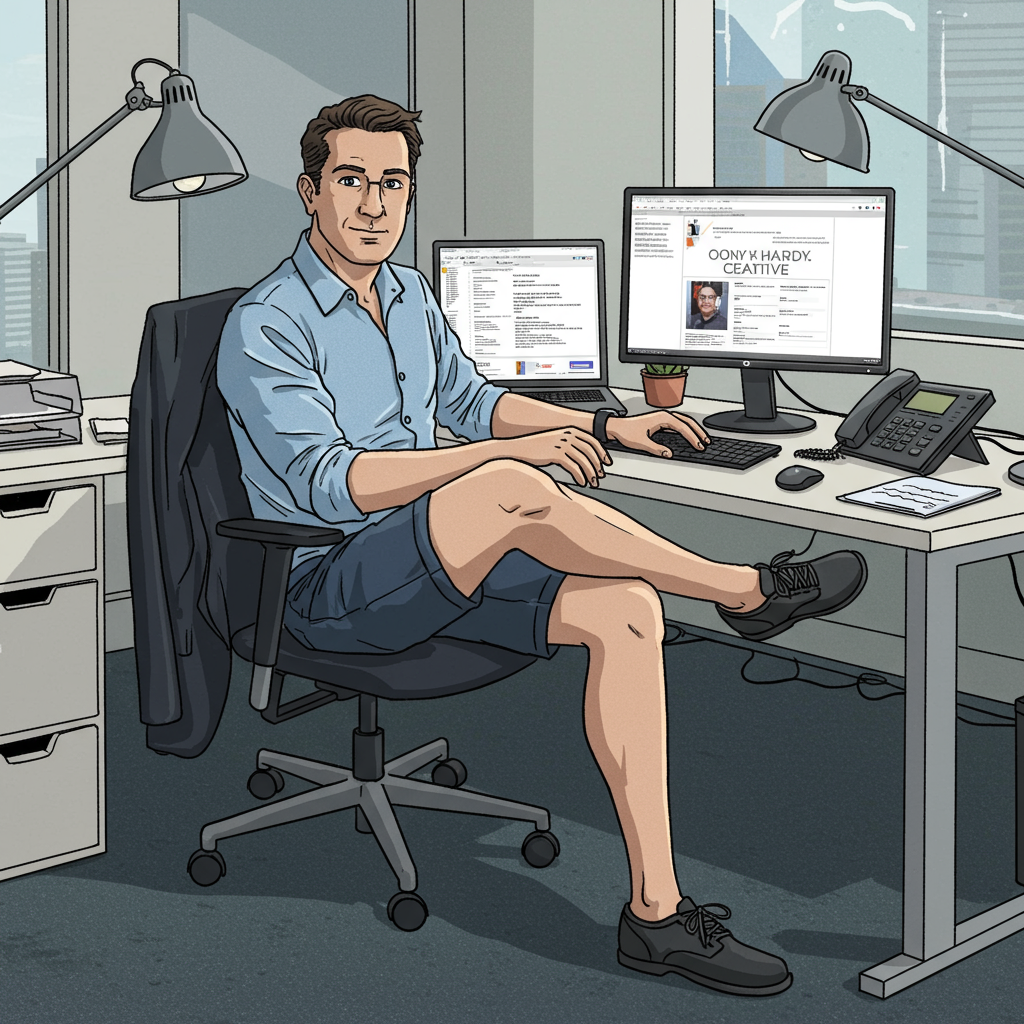As summer temperatures rise and commutes become steamy, a perennial question resurfaces in offices: Can men wear shorts to work? While once largely considered a workplace faux pas, attitudes appear to be shifting, sparking lively debate online and in person.
Walk into some offices today, and you might see employees, like Tony Hardy who runs a branding agency in Northumberland, comfortably working in shorts. His company, Canny Creative, foregoes a strict dress code, prioritizing comfort and professionalism, especially when the air conditioning falters. As Tony puts it, “Imagine sweating buckets all day and being really uncomfortable and then expecting them to also turn out great work.”
The shift towards more casual office attire has been significant in recent years, largely influenced by the work-from-home era during the pandemic. People grew accustomed to dressing more relaxed, a habit that many have sought to continue upon returning to the physical workplace. Personal stylist Karina Taylor notes that office wear has “just gone so casual,” with jeans and trainers becoming commonplace. Style editor Carmen Bellot adds that working from home meant the bottom half of outfits for video calls became irrelevant, normalizing shorts for many during the workday.
Despite this trend, wearing shorts to the office remains “very much a grey area,” according to Karina Taylor, who describes them as “the ultimate casual piece of clothing.” Public opinion, however, is leaning towards greater acceptance. A YouGov poll in 2022 found that 66% of Britons considered it acceptable for men to wear shorts in the office, a notable jump from 37% in 2016. It’s worth noting the 2022 poll was conducted on the UK’s hottest day, which may have influenced the results.
Navigating the Office Shorts Dilemma
Stylists generally agree that the appropriateness of shorts in the office depends heavily on context. Factors to consider include:
Your Role: Client-facing positions, particularly in traditional sectors like law or finance, are less likely to accommodate shorts. They are often perceived as too informal for such professional interactions.
Company Culture: If your workplace lacks a formal dress code, observe what colleagues, especially those in leadership positions, are wearing. Do others wear shorts? What is the general level of formality?
Industry: Creative or tech industries often have more relaxed dress codes compared to corporate environments.
As personal stylist Nick Hems warns, if you’re unsure, “you may be pushing the boundaries.”
What Do Companies Say?
Many large companies have moved away from explicit, restrictive dress codes, opting instead for guidance that balances comfort with professionalism. Companies like Accenture and British American Tobacco expect staff to dress appropriately, particularly when meeting clients or attending events, but don’t ban specific items outright. Accounting giant PwC trusts employees to make “appropriate decisions” about their attire, stating they don’t list items staff “can and can’t wear.” Santander permits both casual and business dress for most staff but draws a line at “anything that could be beachwear.”
Styling Shorts Appropriately for the Office
If your company culture allows for shorts, the type of shorts you choose is critical. There’s a strong consensus among experts on how to keep it office-appropriate:
Opt for Formal & Tailored: Choose chino-style or tailored shorts in smart fabrics.
Mind the Length: Avoid anything too short. A length just above the knee is generally safest.
Avoid Casual Styles: Beach shorts, sports shorts, cargo shorts, and denim shorts are typically considered too casual for the office.
However, exceptions exist. At social media agency We Are Social, the managing director, Lucy Doubleday, states employees can “wear what you want,” viewing clothing as creative expression. Some staff have even worn hot pants. Tony Hardy and his team at Canny Creative regularly wear shorts, even to client meetings, including one at a major bank’s headquarters in Canary Wharf where they received “strange looks” among a sea of suits. Tony believes that if a company has an issue with their attire, they likely aren’t the right fit for a partnership.
Beyond Perception: Comfort and Performance
For some, like headteacher Dave McPartlin, debating the appropriateness of shorts at work is “ridiculous.” He wears them during summer at school, finding that students don’t treat him any differently based on his clothing. Similarly, Diane Brander wears shorts for comfort in her account administration job, stating her performance “would probably suffer” if she were uncomfortably hot in trousers.
Carmen Bellot also touches on perceived differences in how shorts are viewed on men versus women, suggesting men may feel less comfortable wearing shorts outside of holiday contexts, a sentiment she doesn’t observe as strongly in womenswear.
The Bottom Line
Ultimately, deciding whether to wear shorts to the office requires careful consideration. As stylist Karina Taylor advises, only do so if you feel confident about your company’s dress code and your ability to style them appropriately. If there’s any doubt, it might be best to avoid them to prevent unnecessary stress or lack of confidence. Balancing personal comfort with workplace professionalism remains the key.




